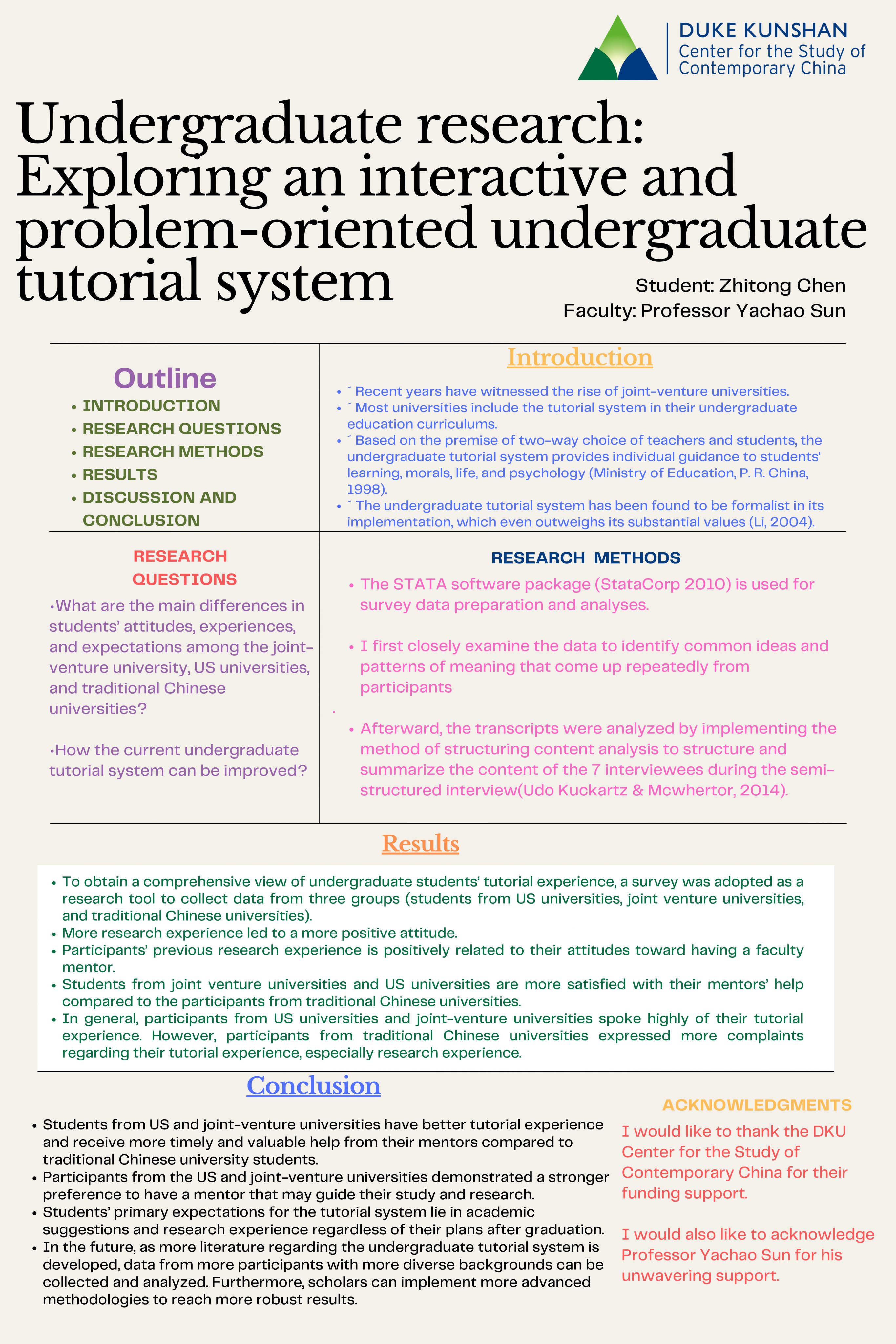
Supervisor: Yachao Sun, Assistant Professor of English Language
Student Researcher
Zhitong Chen is a junior student majoring in political economy/economics at Duke Kunshan University. She is the 2021 National Scholarship recipient and the 2020 National Endeavor Scholarship recipient. As an interdisciplinary researcher with her passion and research experiences in asset pricing, health economics, political economy, education economics, FinTech, environmental economics, and blockchain, Zhitong received research funding from the Center for the Study of Contemporary China (CSCC) for a Student Research Grant for the academic year 2021-2022. She was also supported by both the 2020 and 2021 summer research scholarships. Zhitong has internship experience in Ernst & Young Global Limited, CITIC Securities Company Limited, and China Merchants Bank. She was a member of the Operations & Finance team of the 2021 Duke-China Forum. During the 2020 China-CEEC Corporation New Year Gala, she took charge of the reception of the Director of the Slovenian Consulate in Shanghai. Recently, she joined SciEcon CIC as a scholar, supporting the pioneering SciEcon publications and assisting the SciEcon AMA program.
About the Project
The implementation of the undergraduate tutorial system allows students to choose mentors more independently, which effectively prevents students from choosing mentors who are not a great fit (Liu & Yan, 2012). For instance, some mentors focus more on theoretical research and may be not familiar with the recent popular research topics. As an individual training model, the undergraduate tutorial system also potentially forces professors consciously or unconsciously to strengthen their quality improvement, enrich scientific knowledge and ultimately achieve self-optimization to some extent (Yang et al., 2013).
The occurrence of the tutorial system is undoubtedly a comprehensive improvement in undergraduate research training. It has important theoretical value and practical meanings to develop personalized personnel training mode in improving the overall undergraduate research experience. It is also an effective way to develop a new type of faculty-student relationship.
However, after decades of practice and exploration, the implementation of the undergraduate tutorial system has inevitably encountered certain issues. Due to the negative influences caused by certain factors, such as “the impropriety of the institutional environment, the vague location of the mentor’s responsibilities, lack of systematic studies about the institution’s targets, and the shortage of tutors, etc.” (Liu & Yan, 2012), the undergraduate tutorial system has failed to fully play its role well on “individuality cultivation”. Moreover, in some cases, the undergraduate tutorial system has been found to be formalist in its implementation, which even outweighs its substantial values (Li, 2004). Consequently, some students lack support from their advisors to conduct their research, and others face the challenge that they are not capable enough to conduct research. However, the undergraduate period is a transitional stage from the immature to mature individual development, which may largely contribute to their outlook on life, values and worldview. Therefore, an interactive and problem-oriented tutorial system will not only effectively help undergraduates improve their academic performance based on their needs, but also stimulate their enthusiasm to study and live energetically. This requires both effective and lucid communication between students and faculty, which allows them solve problems in a timely manner. Aiming to encourage the university professors to fully play their roles in advising undergraduate students’ research and continuously make improvements, a more interactive and problem-oriented tutorial system should be implemented. Under such a system, students can enhance their critical thinking, independent learning, and innovative abilities.
Poster Presentation



